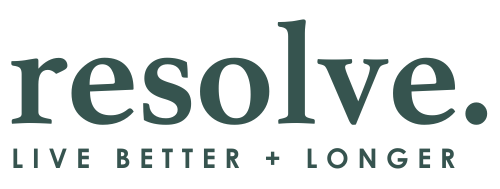Most people don’t realize it, but the way you breathe can directly influence your brain health, memory, and mental clarity.
Scientific research shows that dysfunctional breathing patterns—like shallow chest breathing or mouth breathing—can impair cognitive performance, increase stress, and lead to brain fog. Meanwhile, controlled nasal breathing improves oxygen delivery, balances CO₂ levels, and supports sharper thinking.
In this article, we’ll break down the science behind breathing and brain function, the most common breathing mistakes, and the best breathing techniques to improve memory, focus, and overall brain performance.
Why Breathing Impacts Brain Function
1. Oxygen Fuels Cognitive Performance
The brain is an oxygen-hungry organ. Although it makes up only 2% of your body weight, it uses about 20% of your oxygen supply. Efficient, controlled breathing ensures that your neurons get the oxygen they need to support learning, memory, and mental clarity.
2. Carbon Dioxide (CO₂) Balances Oxygen Delivery
Contrary to popular belief, CO₂ isn’t just waste—it’s essential for delivering oxygen to your brain tissue. Over-breathing or hyperventilation can lower CO₂ levels (hypocapnia), leading to reduced oxygen delivery and symptoms like brain fog, poor concentration, and even anxiety.
3. Breathing and the Stress Response
Chronic stress often causes dysfunctional breathing—shallow, rapid chest breathing that keeps your body stuck in “fight or flight” mode. This raises cortisol levels and disrupts cognitive performance.
Common Dysfunctional Breathing Patterns That Harm Brain Health
Shallow Chest Breathing
- Uses accessory chest muscles instead of the diaphragm
- Limits oxygen intake
- Linked to fatigue, brain fog, and anxiety
Over-Breathing (Hyperventilation)
- Breathing too quickly or too deeply
- Causes CO₂ loss and oxygen delivery issues
- Common in chronic stress, panic, or high-intensity exercise
Mouth Breathing
- Bypasses nasal filtration and nitric oxide production
- Impairs oxygen regulation
- Linked to poor sleep, low energy, and impaired memory
Breathing Techniques to Improve Brain Function and Mental Clarity
1. Diaphragmatic Breathing for Focus and Oxygen Balance
Also called belly breathing, this technique promotes full oxygen exchange and better CO₂ regulation.
How to practice:
- Sit or lie down comfortably
- Inhale through your nose for 4 seconds (belly rises)
- Hold for 4 seconds
- Exhale through your nose for 6 seconds (belly falls)
- Repeat for 5–10 minutes daily
2. Box Breathing for Stress and Mental Clarity
Used by Navy SEALs to enhance focus and reduce stress.
Instructions:
- Inhale for 4 seconds
- Hold for 4 seconds
- Exhale for 4 seconds
- Hold for 4 seconds
- Repeat for several rounds
3. Nasal Breathing for Better Sleep and Cognitive Performance
Switching from mouth breathing to nasal-only breathing improves nitric oxide production, sleep quality, and oxygen efficiency.
Tools to help:
- Mouth tape (e.g., Myotape) to support nasal breathing during sleep
- Nasal sprays (like Xlear) and nasal dilators (like Intake Nasal Strips)
- Neti pots or saline rinses before bed
- Myofunctional therapy to improve tongue posture and airway function
Bonus Tip: Practice nasal-only breathing during exercise to build tolerance and optimize oxygen delivery under stress.
See this blog post for more info about mouth taping to improve sleep and brain health.
4. Resonant Breathing (Coherent Breathing)
This steady rhythm of 5–6 breaths per minute improves heart rate variability (HRV), reduces anxiety, and enhances brain function.
How to practice:
- Inhale through your nose for 5–6 seconds
- Exhale through your nose for 5–6 seconds
- Continue for 5–10 minutes
- Use apps like The Breathing App or Othership for guided practice
5. The Buteyko Breathing Method for CO₂ Regulation
Designed to correct over-breathing and improve CO₂ tolerance.
Steps:
- Inhale gently through the nose
- Exhale slowly through the nose
- Hold breath at the end of the exhale as long as comfortably possible
- Resume nasal breathing
- Repeat for 2–3 rounds daily
The Bottom Line: Breathe Better, Think Better
Your breathing habits have a direct impact on your brain’s performance. If you’re dealing with brain fog, poor memory, anxiety, or lack of focus, it might be time to look at how you’re breathing.
Incorporating techniques like diaphragmatic breathing, nasal breathing, box breathing, and resonant breathing can improve brain oxygenation, reduce stress, and enhance cognitive clarity.
Want to Take It a Step Further?
At Resolve Medical, we specialize in optimizing brain health through a functional medicine approach. We address the root causes of cognitive decline—including breathing dysfunction, nutrient deficiencies, inflammation, and more.
Book a free discovery call to explore how personalized strategies can help you regain focus, boost memory, and future-proof your brain.
Research
Zaccaria A, Salsano G, Bottaro DP, et al. Metabolic control of growth hormone secretion supports fasting-induced brain adaptation. Nat Commun. 2023;14(1):4265. https://www.nature.com/articles/s41467-023-40139-7



